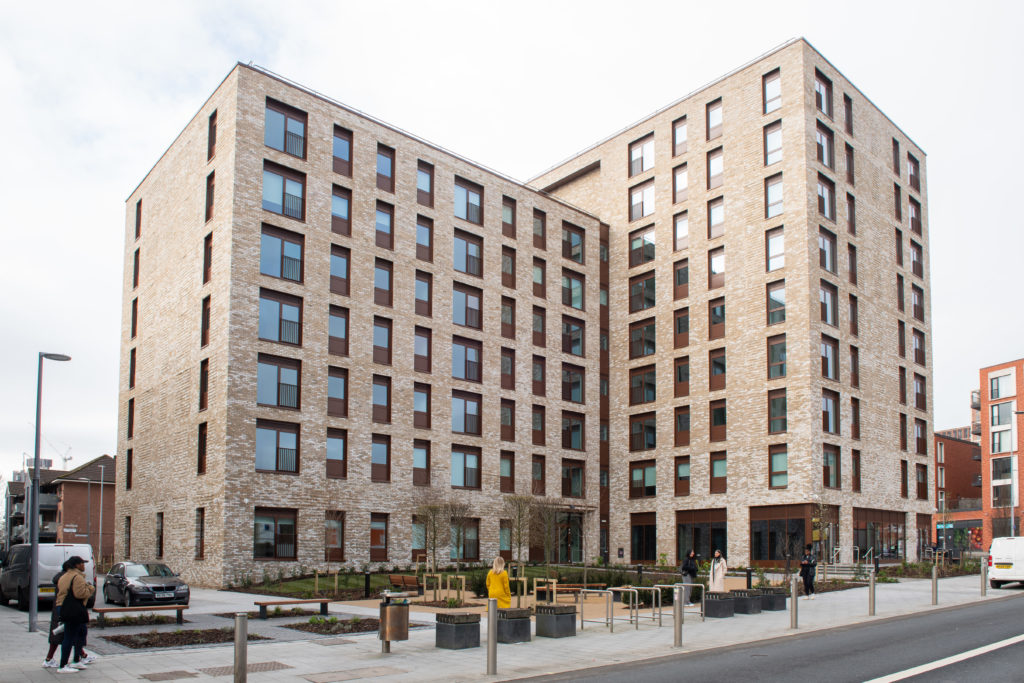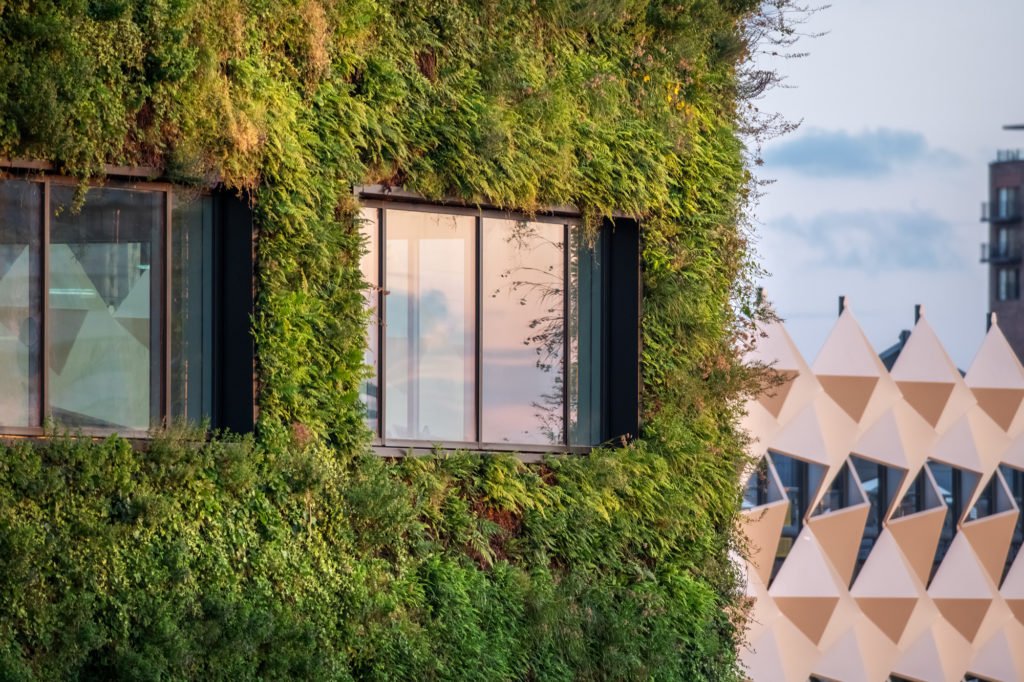RECOM Whitepaper: NW Property Industry 2024 Market Predictions
26.03.24 6 min read

Our Director of Project Management – North West, Stuart Rogers, was invited to contribute to RECOM Solutions’ recent whitepaper looking at the current market, trends and future prospects.
The whitepaper features the thoughts and opinions of some of the key players in the North West property industry, discussing their recent experiences and exactly where they see the current market. It is an in-depth look at the challenges and opportunities we all currently face across the region.
Download the full whitepaper
Current Trends
As a business with a focus on strong partnerships, we see public-private collaboration flourishing.
Genuine partnerships at the local and regional level are fundamental to delivering across the North West. Collaboration creates high-quality places which respond to local needs. They result in a focus on long-term issues such as sustainability, skills, and social value. Projects which deliver these outcomes are still popular with funders.
Despite this, there is inevitably a level of uncertainty within the market. It is no surprise that in response to national and international instability, the investment market has tightened. This has an impact on the ground, for example the higher cost of borrowing will impact the viability of development.
Nevertheless, it is important that we continue to recognise that we work over the long-term – in 10-, 15-, or 20-year cycles – and should not overreact to short-term challenge.
The growth in private and public sector partnerships is important. Most local authorities are now recognising the benefits of working in partnership with the private sector to deliver major regeneration. Many local authorities are increasingly keen to showcase their opportunities nationally and internationally and are developing robust frameworks and masterplans to encourage inward investment.
The private rental and affordable housing markets are particularly strong not just in the North West, but across the UK. There remains strong demand for quality accommodation, and the Government is also pushing for higher quality across the sector – particularly in social housing.

100% affordable, Passivhaus-certified, Greenhaus in Salford has recently completed
Challenges and Opportunities
As with many sectors, we have gone through a period of significant cost inflation. This has not been matched, necessarily, by rising values. This has inevitably squeezed the viability of projects in city centres, which would generally be considered more viable.
Whilst high-quality and sustainable development will always attract funding, there is additional pressure on town centres located outside Manchester and Liverpool. Values are lower, but construction costs remain the same. We need to continue to work hard alongside our partners to showcase the value of regeneration as high-quality projects will still attract funding.
The North West is a key growth area for the UK, with a wealth of potential waiting to be unlocked. We are fortunate to have two combined authorities, the Greater Manchester Combined Authority and Liverpool City Region Combined Authority. They have achieved devolution deals which give some local control to previously centralised funding, particularly for housing.
In the future, Greater Manchester will also enjoy a single settlement pot, which will offer even more control over local spending. This is allowing the region to work with delivery partners with a proven track record of creating successful places with an emphasis on sustainability, community, and quality.
Combined with strong leadership in the North West and a mature supply chain, this will allow the region to continue to grow and attract investment over the long-term.
The Present and the Future
As a nationwide placemaker with regional teams based in Manchester, Leeds, London, and Birmingham, we have a good understanding of the industry across the UK. What we have found is that all regions are quite different, and there is no one solution which suits all. It is necessary to combine local insight with the resources and capabilities we have as a nationwide organisation.
Yet, what remains consistent in every region is an emphasis on delivering quality and being focussed on long-term impact – no one thanks you for short-term thinking.
The North West is certainly among those leading the way, with a track record of being able to deliver multiple long-term regeneration projects. If the property industry in the North West maintains high standards, continues to deliver, and can demonstrate impact, it will continue to perform well compared to the rest of the UK.
Large-scale placemaking will become the focus of all new development. In recent years we have seen a shift to much broader and long-term thinking. It is no longer appropriate for the public and private sector to simply construct a building with no wider strategic vision or ambition.
Greater collaboration with the community is required. The industry is recognising the value of local insight, and this will ensure placemaking remains distinctive and bespoke to the needs of the area.
Sustainability is also critical for the industry. The property industry must do its part to meet national and international obligations and climate change targets. For example, by 2030, buildings are highly unlikely to have large expansive glazed facades.
At the local level, many authorities have declared climate emergencies, whilst the national Net Zero target is rapidly approaching.
To help achieve our aims, empirical data and modern technologies will need to be embraced as part of decision making. In some instances, the information or product may not exist yet. However, when this does emerge, the property industry will need to embrace change.
We are already seeing the early introduction of artificial intelligence, for example. This is being utilised in the way that buildings are managed and operated, running the heating and cooling systems based on real time usage.
This is something that will continue to have an impact, particularly in residential development. Not only can it support sustainability targets, but it can help enhance a resident’s experience at home, digitally aligned with their own personal preferences.

Eden in Salford has achieved a 5.5* NABERS rating
Sustainability
As an organisation we are committed to sustainability, with ambitious targets to lead our sector towards a greener and brighter future.
Our Sustainable Future is our guideline and set of targets for the very highest levels of environmental performance, transparency, and accountability. Its bespoke nature allows for tailor made solutions, listening to communities to understand their needs, and responding to their unique challenges.
This is championed through our work as a placemaker and forms a key part of our two significant and successful long-term joint ventures, Waterside Places with the Canal & River Trust, and ECF with Homes England and Legal and General. It is also a major consideration when deciding to take on regeneration projects with local authorities and other organisations.
The North West is home to several standout projects that reflect our approach to sustainability and energy efficiency.
We have recently handed over Eden in Salford, a pioneering office building. Eden is rated BREEAM ‘Outstanding,’ the internationally recognised certification which assesses a building’s specification, design, construction and use for its impact on the environment. This places it among the top 1% of buildings in the UK.
It has also been commended by organisations including the UK Green Building Council and NABERS, who have given it a 5.5* NABERS ‘Design for Performance’ Target Rating out of a maximum of 6*. Eden is the first new build in the UK to achieve this record-breaking certification.
As part of this urban regeneration process, we sought to harness nature and the environment through the delivery of a flagship natural, green façade. Containing 350,000 plants and 32 different species, it is Europe’s largest living wall. Not only does it attract wildlife, but the plants help improve and reduce urban temperatures, leaving a positive legacy for the whole community.
In Salford also is Greenhaus, a pioneering affordable mid-rise housing development in the Chapel Street community of Salford, which demonstrates our approach to positively transforming the community for the better. The development is the first of its kind to achieve Passivhaus Classic status, reducing residents’ annual energy bills by up to 80%. Here we have delivered a tight-knit community of 96 sustainable, accessible, and affordable eco-friendly homes. These are paired with open green spaces, footpaths, cycle spaces, and access to public transport nearby.
We have learnt important lessons from delivering these two pioneering projects in the commercial office and residential sector, we now have all the data, and are keen to share our experiences with the region to ensure the region stays ahead of the competition in delivering sustainable outcomes and attracting inward investment